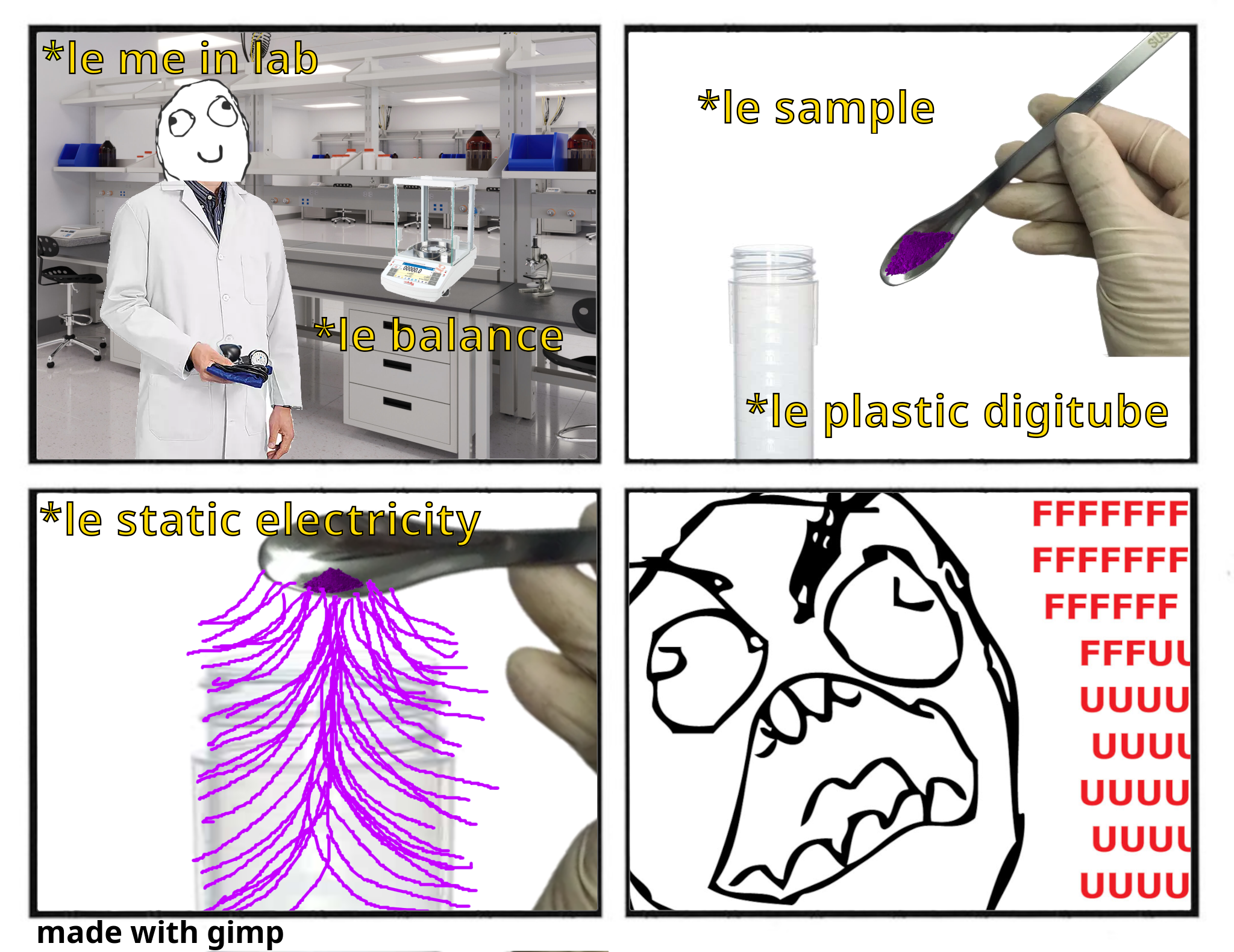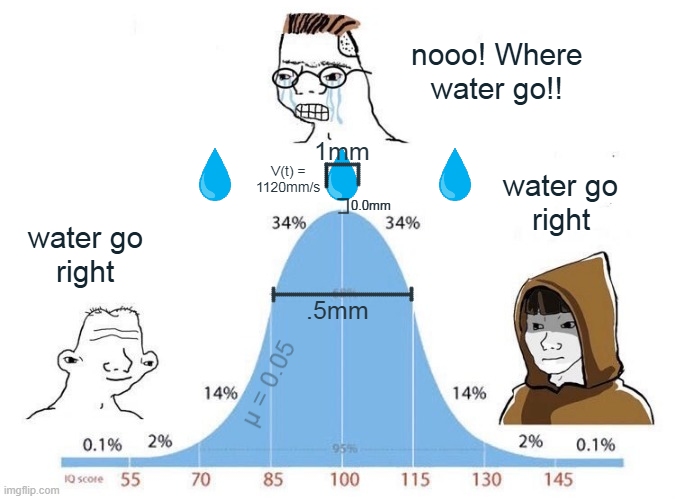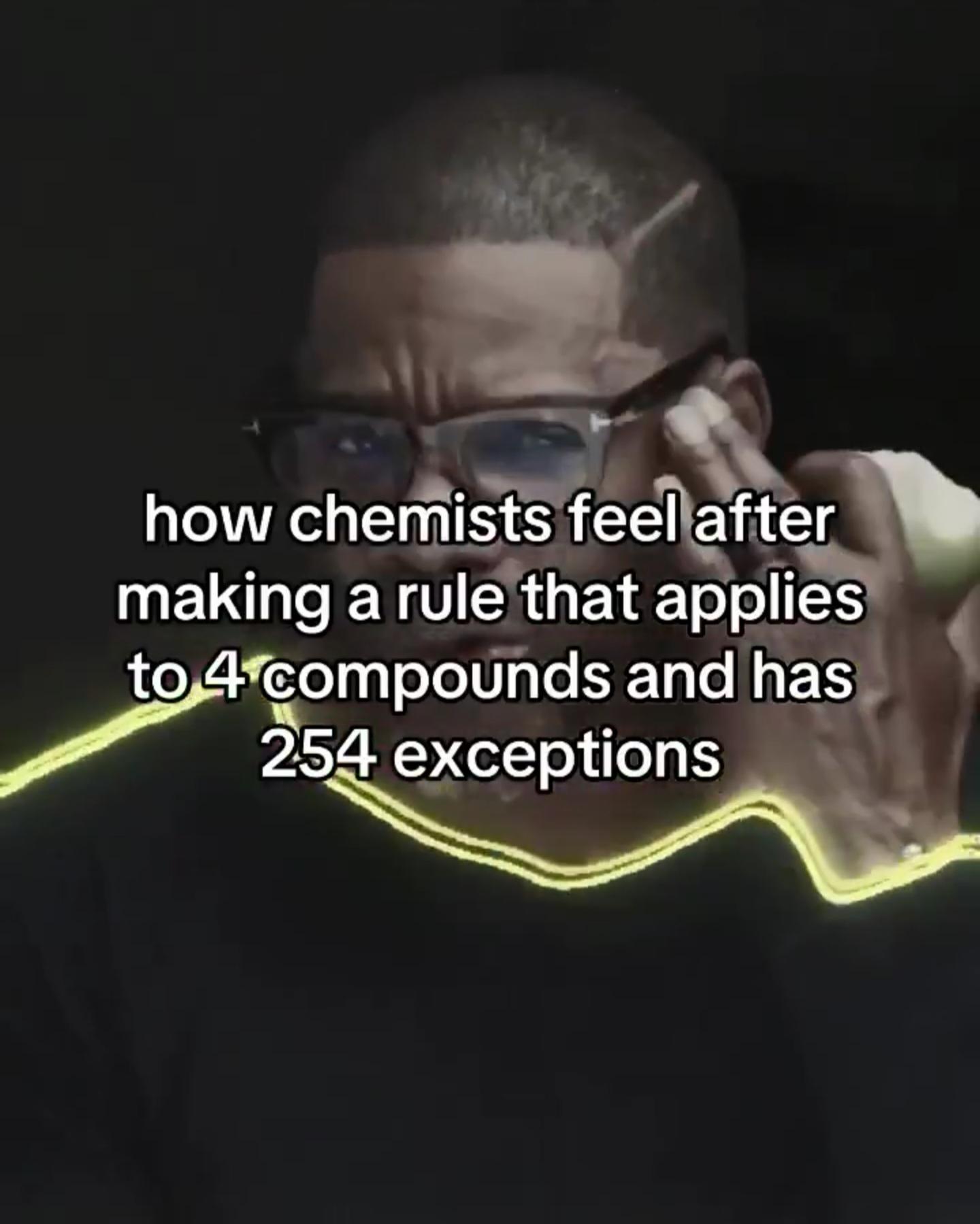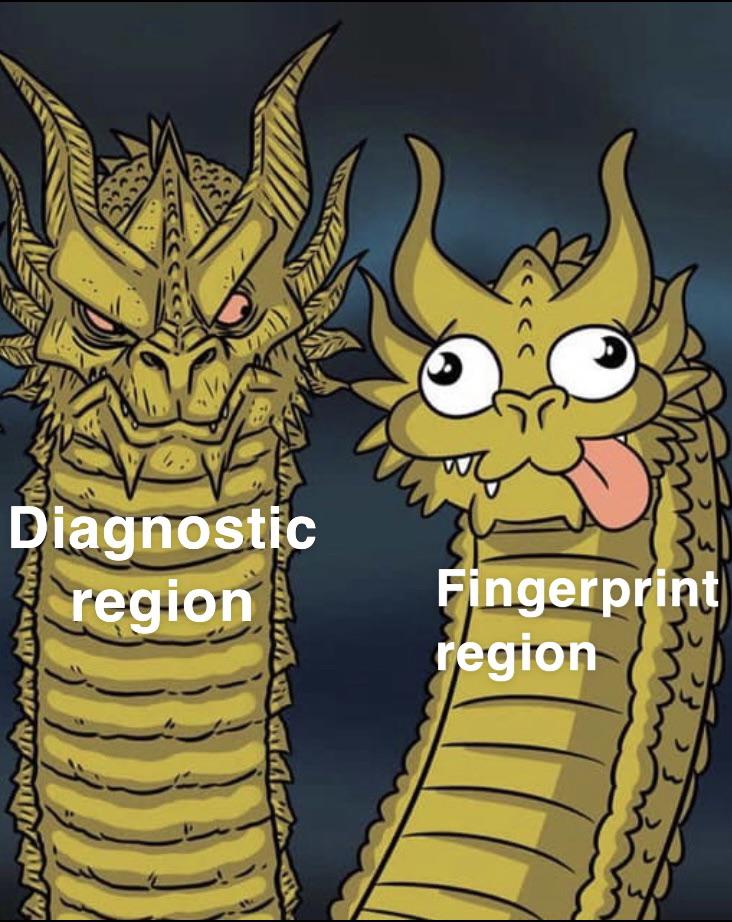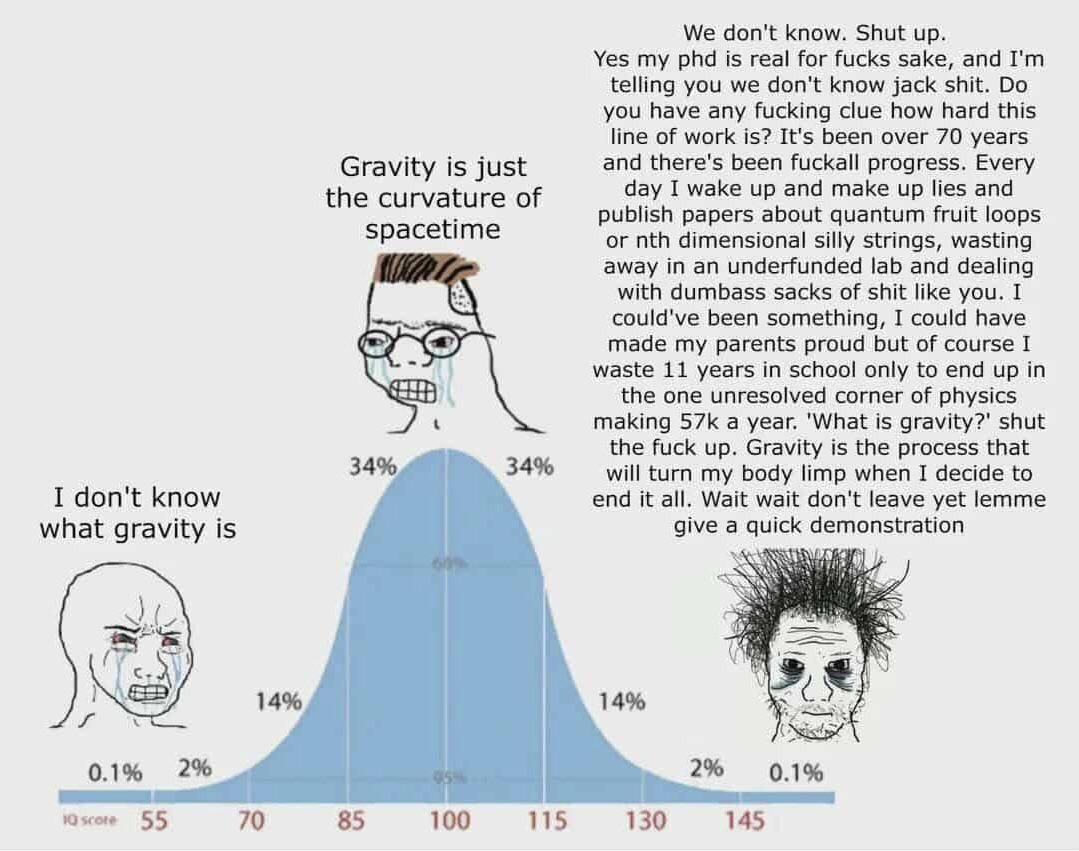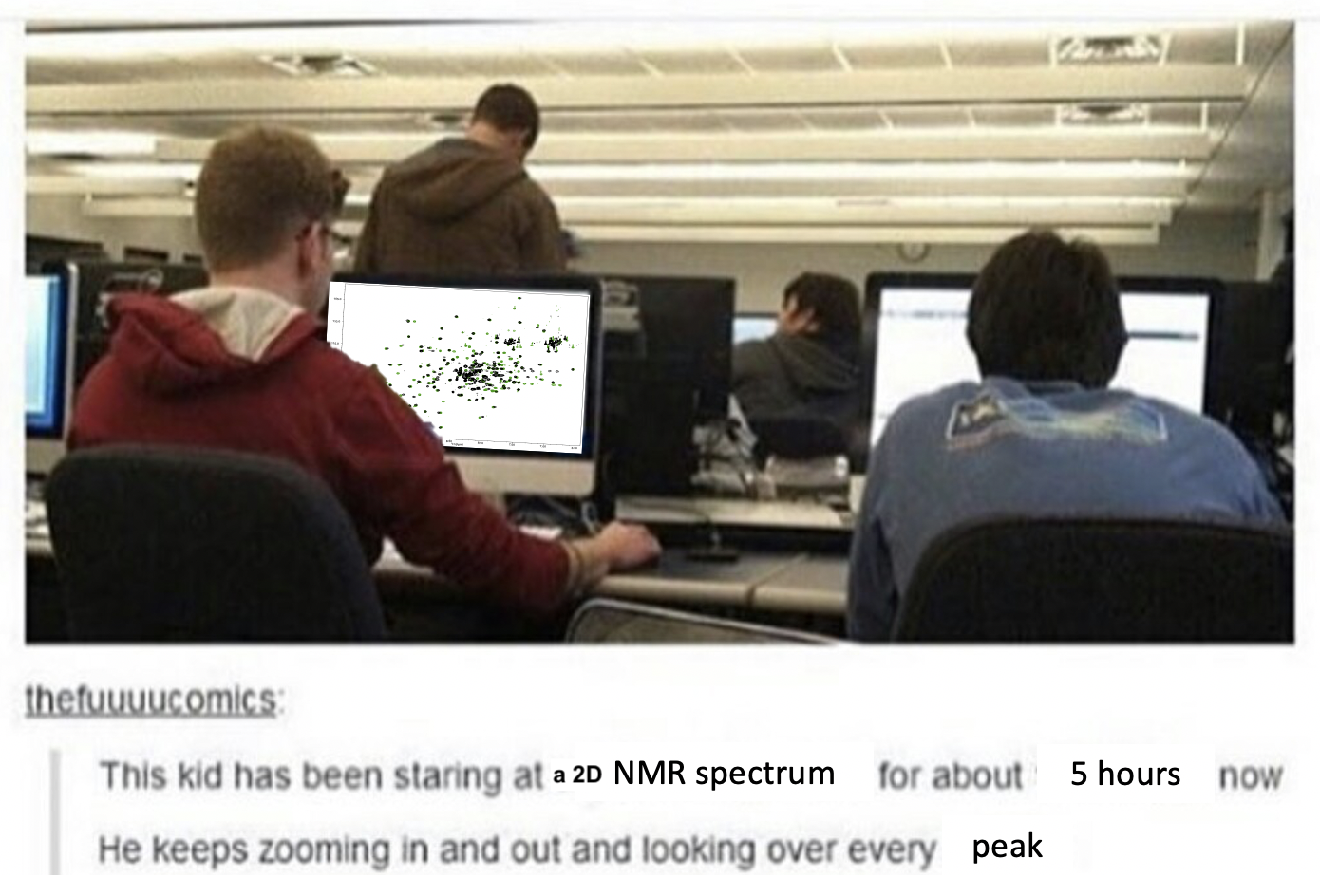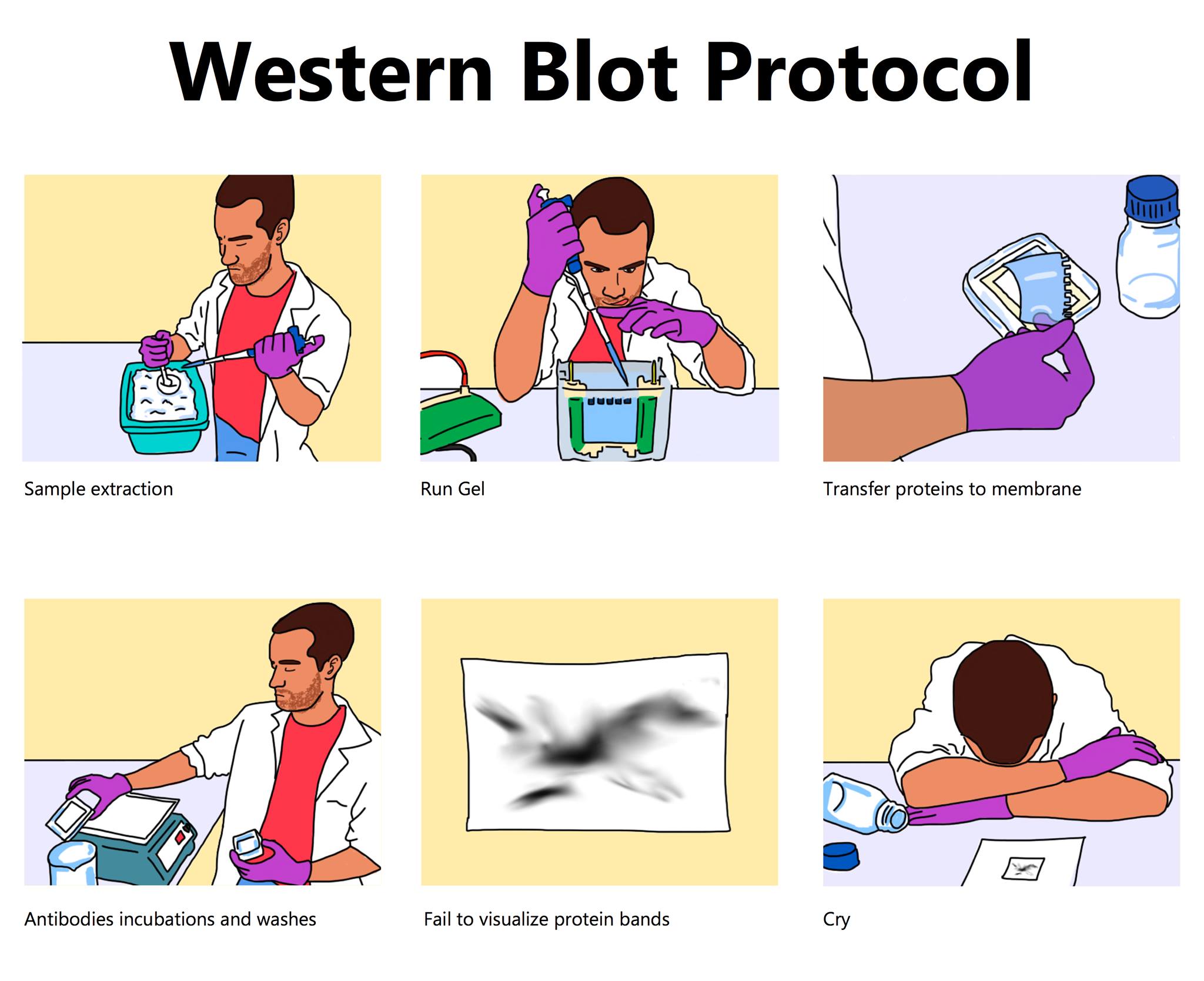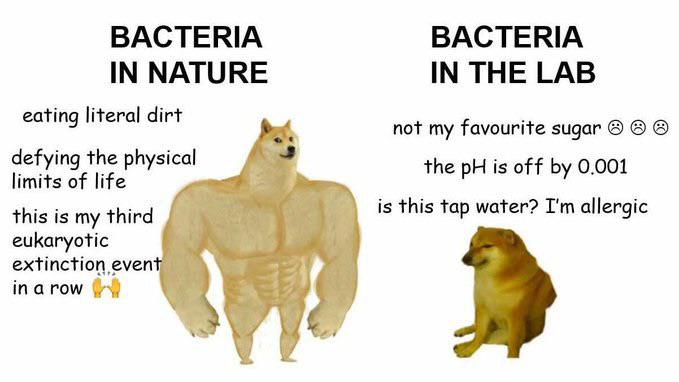The eternal struggle of fluid mechanics students! This meme perfectly captures the pain of watching your carefully calculated water droplet completely ignore the normal distribution curve and decide to yeet itself in a random direction. That moment when you've meticulously set up your experiment with a 1mm dropper, calculated the velocity (V(t) = 1120mm/s), measured the exact 0.5mm impact zone... and then physics decides to troll you by making the water go literally anywhere except where your equations predicted. The bell curve shows where it should land statistically, but water's just like "nah, I choose chaos today!" Every fluid dynamics researcher has felt this pain. You do the math, you set up the perfect conditions, and then water's just like "watch me defy your puny human predictions!" Science is humbling that way!


 Academia
Academia
 Ai
Ai
 Astronomy
Astronomy
 Biology
Biology
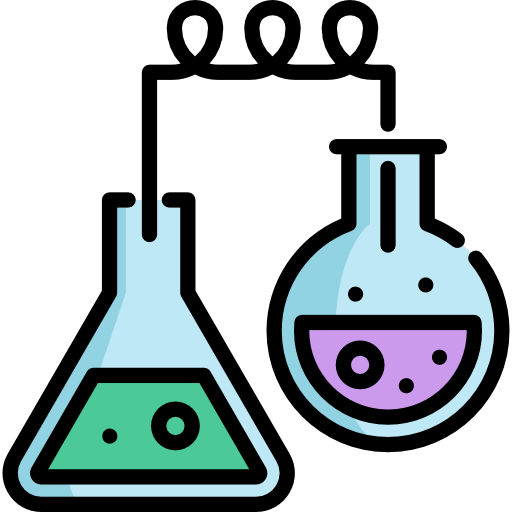 Chemistry
Chemistry
 Climate
Climate
 Conspiracy
Conspiracy
 Earth-science
Earth-science
 Engineering
Engineering
 Evolution
Evolution
 Geology
Geology

